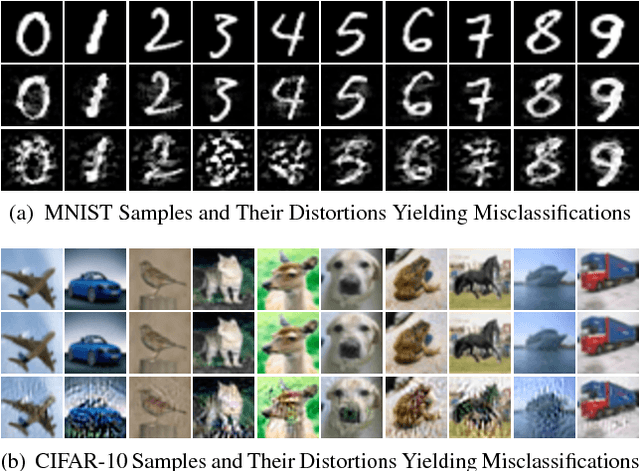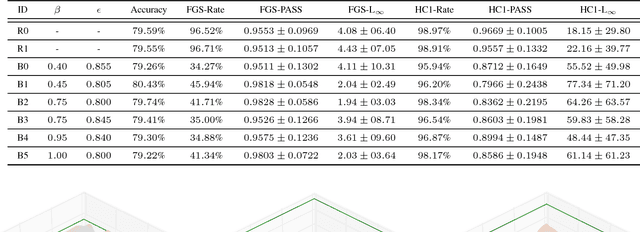Towards Robust Deep Neural Networks with BANG
Paper and Code
Jan 30, 2018



Machine learning models, including state-of-the-art deep neural networks, are vulnerable to small perturbations that cause unexpected classification errors. This unexpected lack of robustness raises fundamental questions about their generalization properties and poses a serious concern for practical deployments. As such perturbations can remain imperceptible - the formed adversarial examples demonstrate an inherent inconsistency between vulnerable machine learning models and human perception - some prior work casts this problem as a security issue. Despite the significance of the discovered instabilities and ensuing research, their cause is not well understood and no effective method has been developed to address the problem. In this paper, we present a novel theory to explain why this unpleasant phenomenon exists in deep neural networks. Based on that theory, we introduce a simple, efficient, and effective training approach, Batch Adjusted Network Gradients (BANG), which significantly improves the robustness of machine learning models. While the BANG technique does not rely on any form of data augmentation or the utilization of adversarial images for training, the resultant classifiers are more resistant to adversarial perturbations while maintaining or even enhancing the overall classification performance.
 Add to Chrome
Add to Chrome Add to Firefox
Add to Firefox Add to Edge
Add to Edge